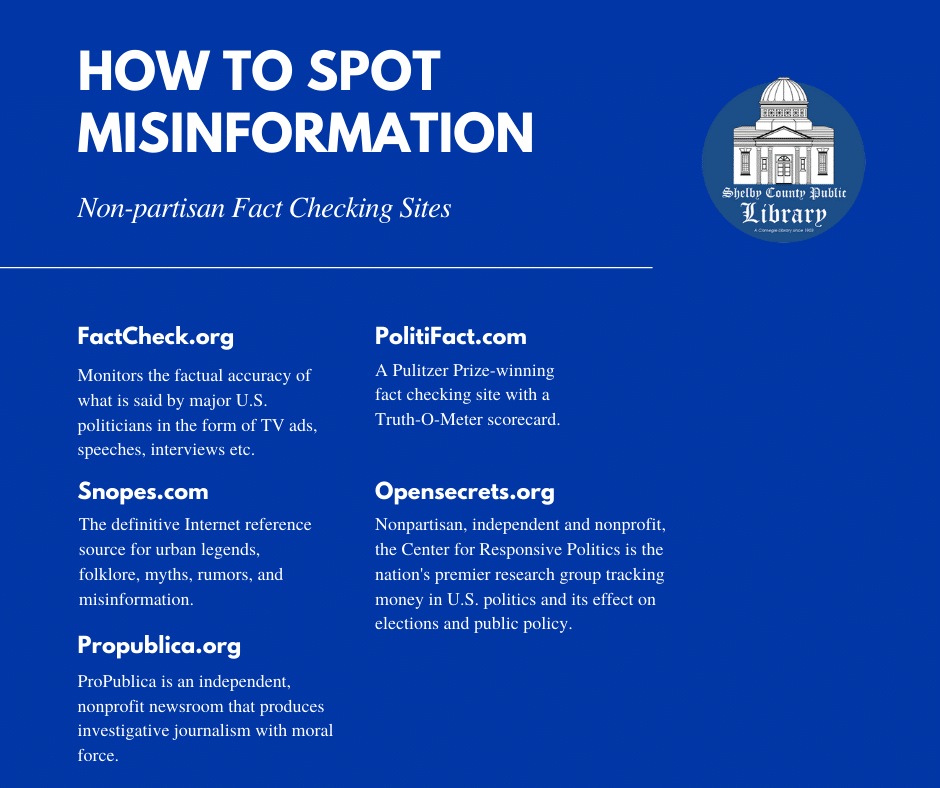02 Dec How to Spot Misinformation
 by Shana Schack, Reference Librarian
by Shana Schack, Reference Librarian
Shana Schack has been with the Shelby County Public Library for eleven and a half years and is currently the Adult Services Librarian. She has a BA in Psychology from the University of Louisville and received her MLIS in 2017 from San Jose State University. She is a happily married mother of two and enjoys gardening, reading, and hiking in her free time.
Finding accurate and reliable sources of information on the internet can be a challenge in this day and age of mountains of misinformation to sift through. As a general rule of thumb, some of
the most dependable information is from educational institutions, government agencies, and non-profit organizations. Generally, these websites will end in .edu, .gov, or .org. A website ending with .com indicates that it is commercial or belongs to a company. Anyone can have a .com website.
Another way to evaluate information or a website for reliability is to apply the CRAAP test. The CRAAP test is an easy-to-remember acronym that stands for Currency, Relevance, Authority, Accuracy, and Purpose:
- Currency – The timeliness of the information.
○ When was the information gathered?
○ Is the site up-to-date? Do the links work?
○ How important is currency? This depends on the topic you are studying. Medicine and science changes rapidly; thus, current information is necessary. If you are studying history or literature, then currency may not be as important. - Relevance – The importance of the information to your needs.
○ Who is the intended audience? Make sure the information is not too basic or too advanced.
○ Does the information relate to your topic or answer your question? - Authority – The source of the information.
○ Who is the author? If it’s anonymous, be sure to ask yourself why. Be leery if the author is not willing to identify herself.
○ Is there an “About Us” page that describes the author’s experience and authority on the topic at hand? That describes the sponsoring company or organization?
○ Is the sponsor’s domain well-known and credible? - Accuracy – The reliability, truthfulness, and correctness of the content.
○ Where does the information come from? Opinions, experts.
○ Is the information supported by evidence?
○ Are there spelling or typographical errors? - Purpose – The reason the information exists.
○ What is the purpose of the information? Is it to inform, teach, sell, entertain or persuade?
○ Is the information fact, opinion or propaganda?

Non-Partisan Online Fact-Checking Resources:


No Comments